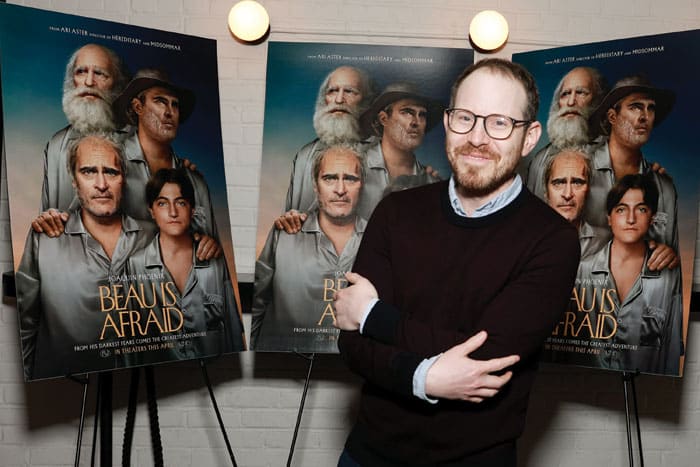
Jewish director Ari Aster doesn’t make films for the faint of heart.
They question the nature of love and one’s obligations to family, friends and romantic partners. In a promotional video, Aster describes his new film, “Beau Is Afraid” (now in theaters) as a “Jewish ‘Lord of The Rings’ but he’s just going to his mom’s house.” I’m not sure if he was joking.
But it is clear that visiting his mom, Mona Wasserman, is not so simple. Beau is anxious and depressed When he might not be able to make his flight, Mona doesn’t believe him and lays the guilt on thick in a phone conversation. That’s their last conversation, as when he does arrive, Beau is told she’s dead — a chandelier has smashed her head. (Aster may want to calm down with this motif as there is a decapitation in his film “Hereditary.”)
To be clear, Aster gets a thrill from challenging audiences. When I saw his 2018 debut, “Hereditary,” a critical and box office hit, two people walked out of the theater. In 2019’s “Midsommar,” an especially violent and bloody death also caused people to walk out. I saw a screening in West Nyack, New York, and a guy walked out yelling, “What the hell is this?”
I think that is Aster’s goal — to push the envelope.
Joaquin Phoenix impresses in a quite difficult role. He plays Beau, a paranoid and cripplingly anxious man whose therapist has prescribed an experimental drug that must be taken with water. Beau lives in a hovel and the street outside is a post-apocalyptic nightmare, a hell-hole populated by a knife-wielding nude and all kinds of vagrants and criminals.
While Beau is involved in many absurd, surrealistic scenes, Phoenix plays it straight. How many Hollywood actors would sign up to be in a film with a penis monster, or a character who has been told by his mother he has a hereditary condition where he could die upon orgasm and decides to risk his life to lose his virginity?
Richard Kind plays Mona Wasserman’s lawyer, who insists on being called Dr. Cohen and explains that the burial must take place as soon as possible and berates Beau for not getting there in time. (Beau has been stabbed and hit by a car so he has a good excuse.)
In some ways, “Beau is Afraid” is Aster’s creepiest, which if you’ve seen his movies, says a lot. There are quite a few twists and turns and some have criticized Aster, saying Mona is a stereotypical Jewish mother. But it’s a movie and he is depicting a character; extreme characters result in extreme emotions from the viewer.
Aster is not making popcorn films where one can sit back and relax. He makes films that examine the nature of guilt and the role of fear in one’s progress or regression, which result in viewers asking what the film means and whether justice is a possible virtue or an impossible farce.
Aster is not making popcorn films where one can sit back and relax. He makes films that examine the nature of guilt and the role of fear in one’s progress or regression, which result in viewers asking what the film means and whether justice is a possible virtue or an impossible farce. I’m sure Aster will take some heat for having a Jewish character that is weak and nebbish and a mother who finds perhaps the most insane use for money in all of film history. But their Judaism is unmentioned and, at times, undercut: A yahrzeit is called “an anniversary” and Mona is given an open-casket funeral. And Beau is told that his father died as soon as he impregnated his mother with his future son. Is Aster making a commentary on the Jewish prohibition of premarital sex? It’s certainly a possibility although there is no guarantee.
The film could have stood to lose 15 minutes (I could have done without the animated sequences), but Aster has made a name for himself as someone who spooks his audience, but also gives them something to think about.
A few plot points are implausible, and the film is difficult to watch at times, but it is supremely acted. Patti LuPone is spot-on as Mona Wasserman, a mother who feels she deserves more love and does something unconscionable.
Nathan Lane and Amy Ryan are excellent as the couple who take Beau in — ostensibly to nurse him back to health — but are extremely bizarre and put an ankle monitor on him. Denis Ménochet — who you may recognize as the father of three daughters who hid Jews under his floorboards at the beginning of Quentin Tarantino’s “Inglourious Basterds” — plays a former American soldier suffering from PTSD who is ready to attack people at every turn. It’s a nearly impossible role, but he does a decent job. Parker Posey, who plays the adult version of Beau’s first love, Elaine, is credible in an extremely difficult scene where she tells Beau something hard to believe.
There is a method to his madness, if you think about the psychology and what children are told by parents who are fearful and don’t want their child to develop their own wings and fly.
Aster’s world is sometimes realistic and sometimes fantastical and absurd beyond belief, to the extent that you wonder how a scene could be in a film. But he should be credited with pushing boundaries with scenes that are purposefully bizarre. There is a method to his madness, if you think about the psychology and what children are told by parents who are fearful and don’t want their child to develop their own wings and fly.
I wish that Lane had been given more to do with his part and that Bill Hader’s cameo as a UPS driver could have been expanded. Aster is a film genius, and if you’re open-minded and have patience, you may appreciate the film. We usually want to hop on the journey of a winner, but here we see a loser, though it may not be his fault.





















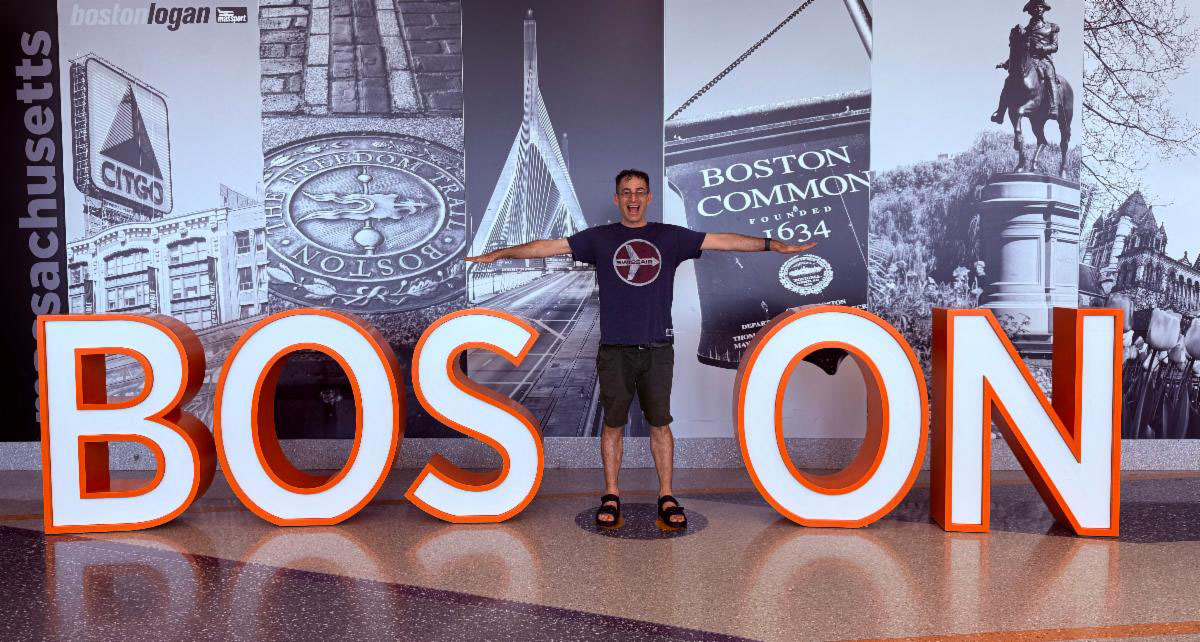





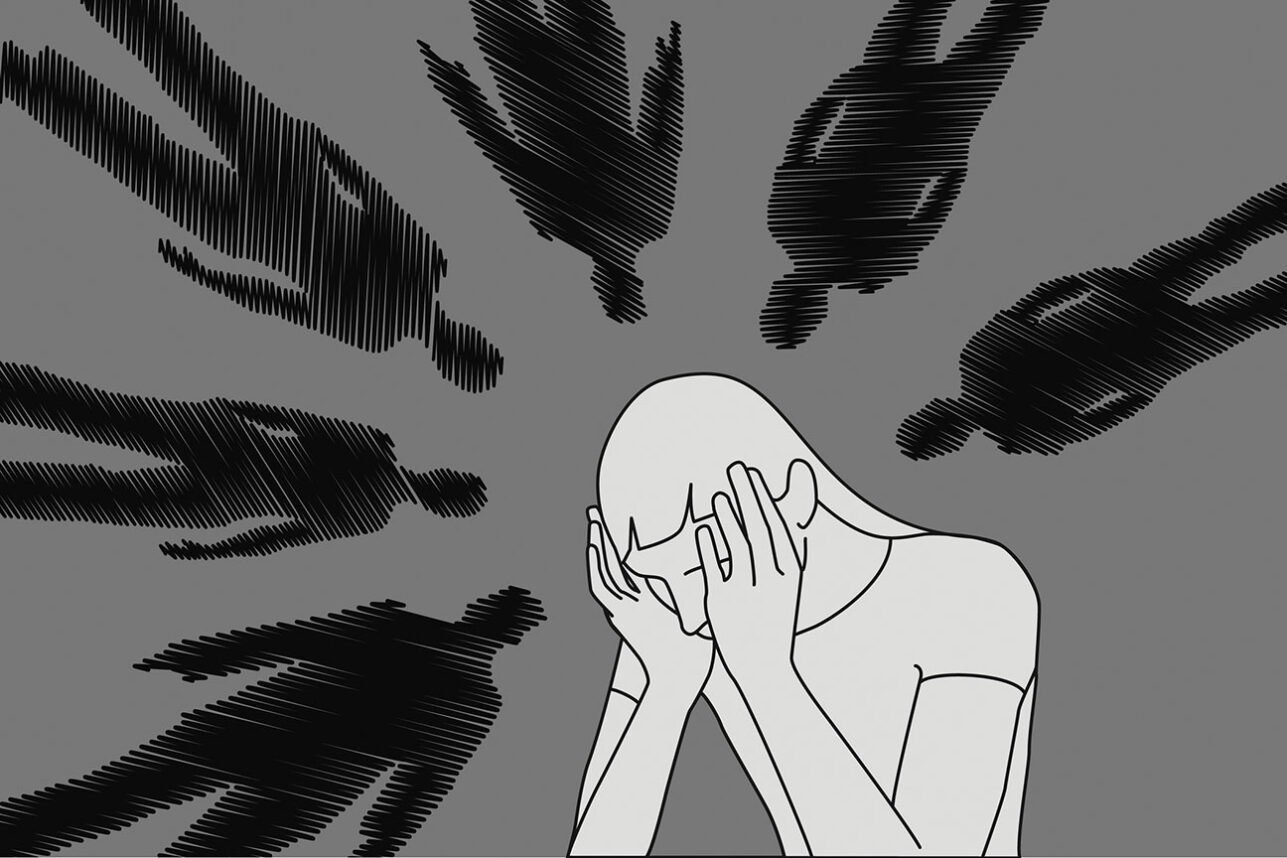
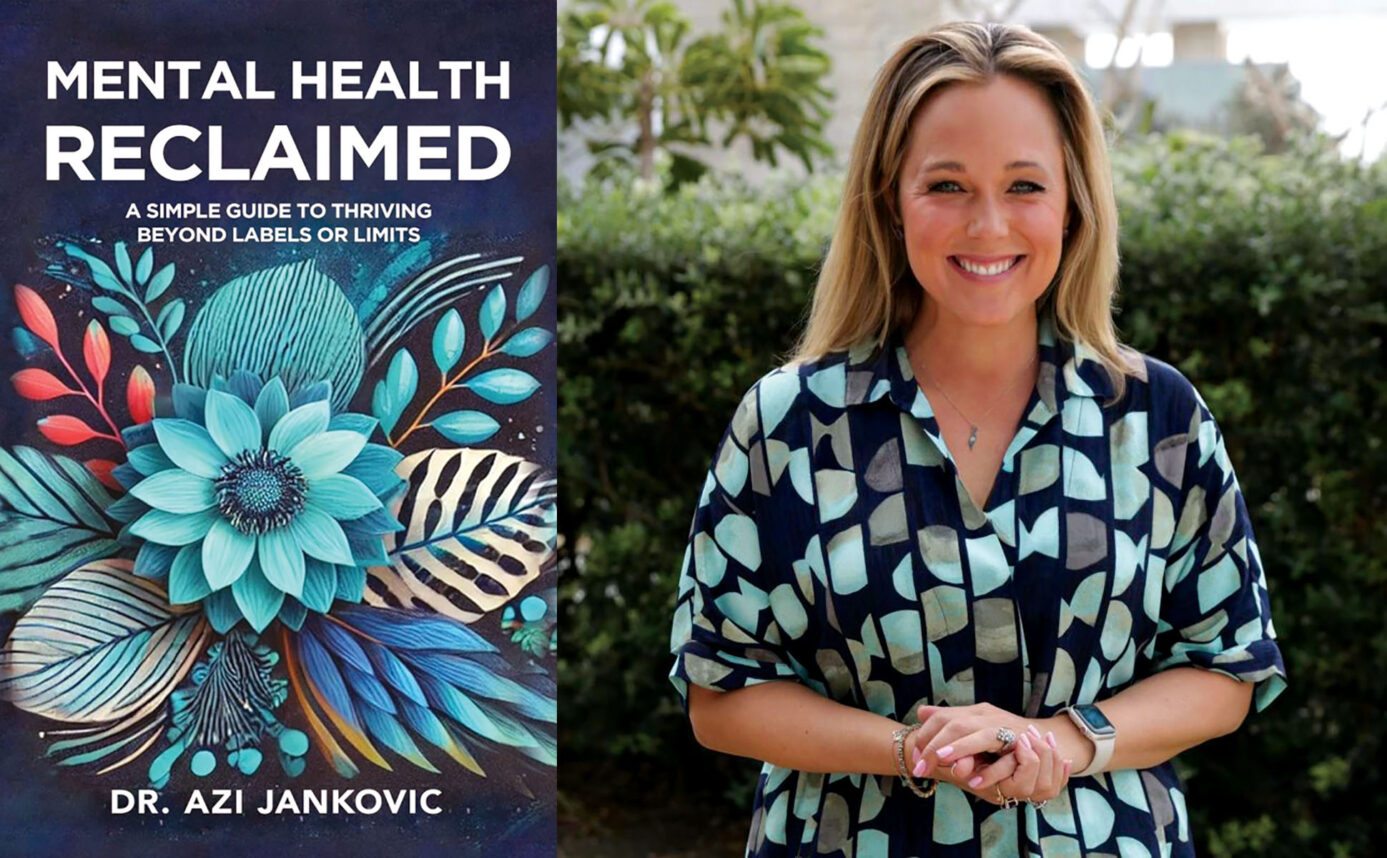
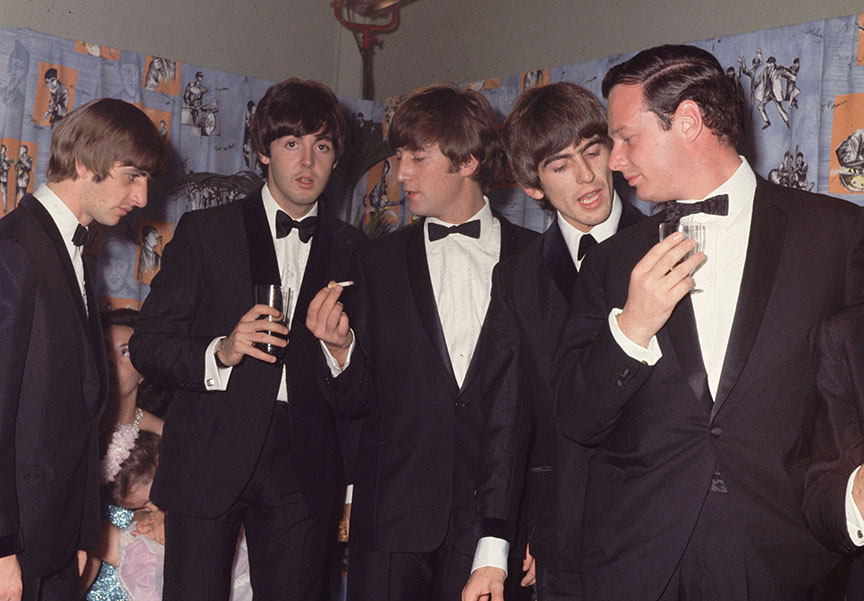



 More news and opinions than at a Shabbat dinner, right in your inbox.
More news and opinions than at a Shabbat dinner, right in your inbox.